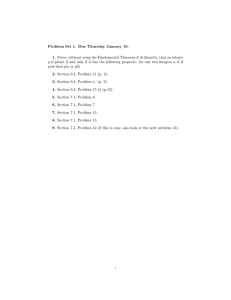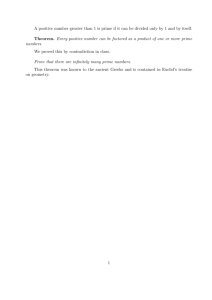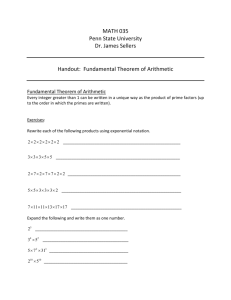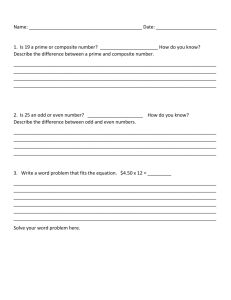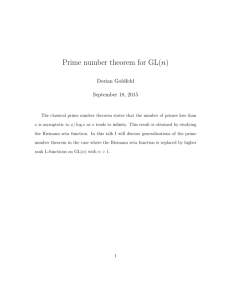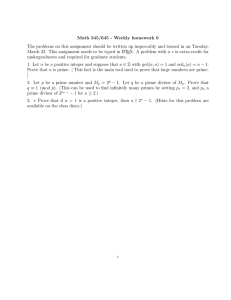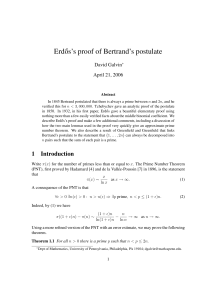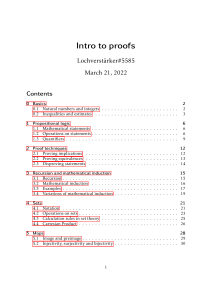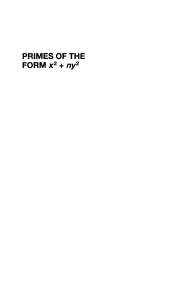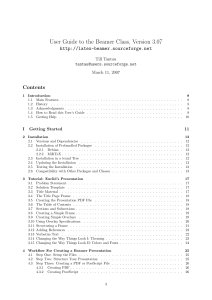Math 345/645 - Weekly homework 4
advertisement
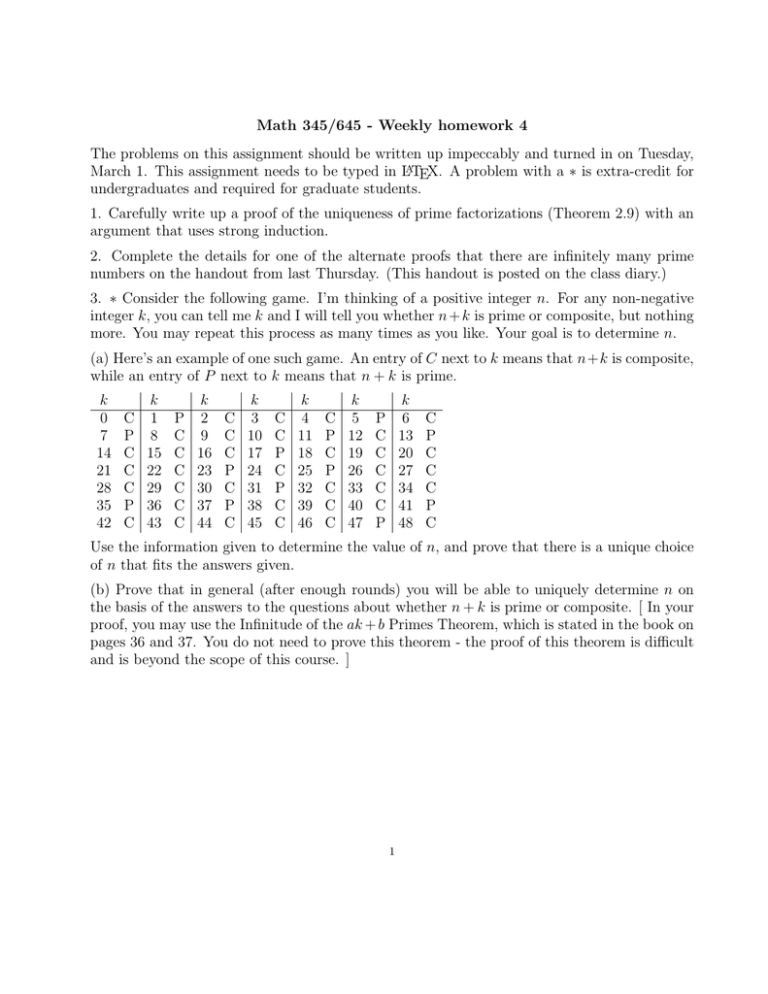
Math 345/645 - Weekly homework 4 The problems on this assignment should be written up impeccably and turned in on Tuesday, March 1. This assignment needs to be typed in LATEX. A problem with a ∗ is extra-credit for undergraduates and required for graduate students. 1. Carefully write up a proof of the uniqueness of prime factorizations (Theorem 2.9) with an argument that uses strong induction. 2. Complete the details for one of the alternate proofs that there are infinitely many prime numbers on the handout from last Thursday. (This handout is posted on the class diary.) 3. ∗ Consider the following game. I’m thinking of a positive integer n. For any non-negative integer k, you can tell me k and I will tell you whether n + k is prime or composite, but nothing more. You may repeat this process as many times as you like. Your goal is to determine n. (a) Here’s an example of one such game. An entry of C next to k means that n+k is composite, while an entry of P next to k means that n + k is prime. k 0 7 14 21 28 35 42 C P C C C P C k 1 8 15 22 29 36 43 P C C C C C C k 2 9 16 23 30 37 44 C C C P C P C k 3 10 17 24 31 38 45 C C P C P C C k 4 11 18 25 32 39 46 C P C P C C C k 5 12 19 26 33 40 47 k 6 13 20 27 34 41 48 P C C C C C P C P C C C P C Use the information given to determine the value of n, and prove that there is a unique choice of n that fits the answers given. (b) Prove that in general (after enough rounds) you will be able to uniquely determine n on the basis of the answers to the questions about whether n + k is prime or composite. [ In your proof, you may use the Infinitude of the ak + b Primes Theorem, which is stated in the book on pages 36 and 37. You do not need to prove this theorem - the proof of this theorem is difficult and is beyond the scope of this course. ] 1
